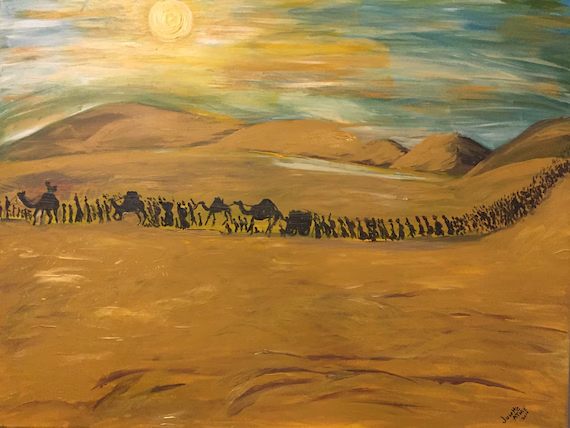Jesus is Baptized
Jesus lived in Nazareth with Mary and Joseph until he was about thirty years old.
Then he went to the Jordan River, where his cousin John, the son of Elizabeth and Zechariah, was teaching the people about God.
Crowds of people came to listen when John told them that they should do as God wanted, and that they should be ready for His King, who was coming soon.
When they asked what they should do. John told them to share their food with the hungry, to give their spare clothes to those who needed them, and that the tax collectors should demand no more from the people than was due.
John led the people who wanted to live better lives down to the river. There he baptized them with water, as a sign that the bad things they had done were washed away, and they could make a new, clean start.
'I baptize you with water, John said to them. 'But one is coming who is much greater than I.
I'm not worthy to undo his sandals. He will baptize you with the Holy Spirit.
Jesus went to John and asked John to baptize him, but John said; 'It's not right that I should baptize you. You should baptize me.
Jesus said to John; 'Let us do what God wants.
After saying a prayer. Jesus walked into the river.
John poured water over him to show that he had been washed clean.
Then, just as Jesus stepped out of the Jordan, the Holy Spirit came in the form of a white dove and hovered over him, and he heard the voice of God say to him;
'You are my dear Son.
I am very pleased with you.













Comments
Post a Comment